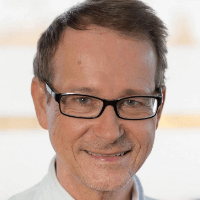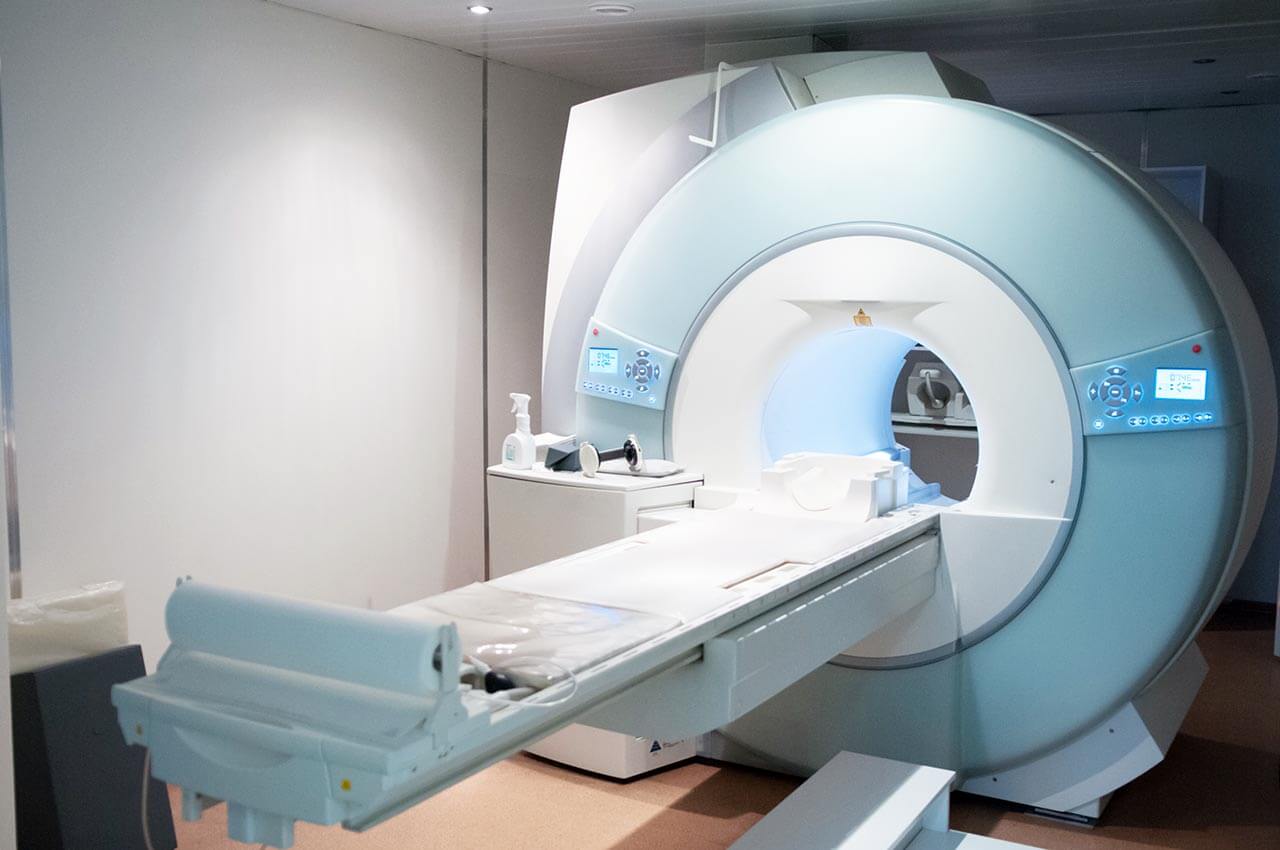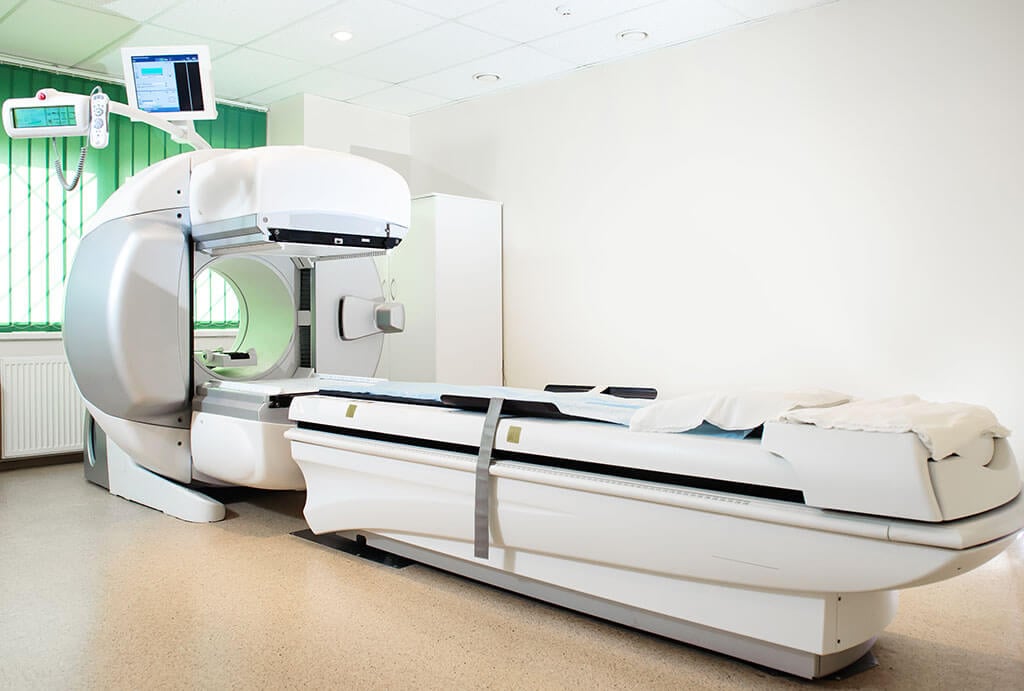
About the Department of Gastroenterology at DKD HELIOS Clinic Wiesbaden
The Department of Gastroenterology at the DKD HELIOS Clinic Wiesbaden deals with the treatment of patients with diseases of the gastrointestinal tract, including the esophagus, liver, gallbladder and pancreas. The focus is on diagnostic and therapeutic endoscopic procedures. The department's team of gastroenterologists successfully carries out classical gastrointestinal ultrasound, gastroscopy, colonoscopy, functional examinations of the esophagus and gastrointestinal tract, as well as imaging studies such as X-ray, CT and MRI. In cooperation with the Department of Nuclear Medicine, the doctors also conduct a diagnostic examination combining computed tomography and positron emission tomography (PET/CT). The therapeutic options of the department include drug treatment with modern medicines, as well as endoscopic procedures to remove gastric and colon polyps, procedures to remove foreign bodies, hemostasis to stop bleeding from the gastrointestinal tract and other interventions. The highly qualified doctors of the department have all the necessary resources at their disposal to provide optimal treatment. The specialists give preference to an individual approach to each patient and his clinical case, so the medical service in the department is at the highest level. The Chief Physician of the department is Prof. Dr. med. Till Wehrmann.
When the patient is admitted to the department, the doctor holds an individual consultation with him, during which he asks questions about the medical history and current complaints. The next step is a comprehensive diagnostic examination, the purpose of which is to identify pathological changes in the organs of the gastrointestinal tract and determine the cause of their development. An integral part of any diagnostic program is an ultrasound examination of the abdominal and retroperitoneal organs: liver, gallbladder, biliary tract, pancreas, spleen, kidneys, bladder, etc. Since ultrasonic waves do not have a harmful effect on the human body, ultrasound examinations do not cause any side effects. Moreover, such diagnostic tests are absolutely painless. The department uses state-of-the-art ultrasound equipment, thanks to which doctors can assess the condition of all abdominal organs and anatomical structures with the highest accuracy. In addition to classical ultrasound, the department also successfully uses endoscopic ultrasound, which allows examining the mucous membranes of the esophagus, stomach, small and large intestine. This diagnostic examination involves the use of a special endoscope with an ultrasonic sensor. For the patient to feel comfortable during the procedure, he is administered sedatives. Whenever required, the doctors can immediately take tissue samples during the endoscopic ultrasound examination for their further study (for example, in order to exclude a malignant process).
The doctors of the department often admit patients with suspected diseases of the stomach, esophagus and duodenum. In this case, an indispensable method of examination is gastroscopy, which allows assessing the condition of these particular organs. Gastroscopy involves the use of an endoscopic instrument (gastroscope), which is inserted into the upper gastrointestinal tract through the oral cavity. A few hours before the examination, the patient should not eat any food or drink. Gastroscopy can be performed under local anesthesia or sedation. Typically, a diagnostic test does not take more than a few minutes. The doctors of the department carry out gastroscopy not only for diagnostic, but also for therapeutic purposes. The procedure is mostly used to dilate stenoses by implanting stents, remove superficial benign or malignant neoplasms.
Another common endoscopic test is colonoscopy, which is used to assess the condition of the colon mucous membrane. During the study, the doctor inserts the colonoscope through the anus into the rectum and further into all parts of the colon. The duration of the diagnostic procedure is about 20-30 minutes. Sedatives are used to relieve pain. Colonoscopy is also used therapeutically to remove polyps, which are often the precursors to colon cancer.
The department also conducts functional examinations of the gastrointestinal tract to detect dysfunctions of the esophagus, stomach, small intestine and rectum. The team of gastroenterologists successfully performs esophageal impedance, esophageal manometry, antroduodenal manometry and anorectal manometry.
The department's range of medical services includes:
- Diagnostics
- Classical abdominal ultrasound, including ultrasound-guided punctures
- Endoscopic examinations
- Endoscopic ultrasound scanning of the gastrointestinal tract, including the biliary tract and pancreas
- Gastroscopy
- Colonoscopy
- Capsule endoscopy
- Functional diagnostics of the gastrointestinal tract
- Esophageal impedance
- Esophageal manometry
- Antroduodenal manometry
- Anorectal manometry
- Imaging diagnostics
- X-ray
- CT scan
- Magnetic resonance imaging
- Positron emission tomography combined with computed tomography (PET/CT) – in collaboration with the Department of Nuclear Medicine
- Treatment
- Gastroscopy for stenosis dilatation using stents, removal of benign or malignant neoplasms of the mucous membrane
- Colonoscopy to remove colon polyps
- Other diagnostic and therapeutic options
Curriculum vitae
Higher Education and Professional Career
- 1980 - 1986 Study of Medicine at the Universities of Kiel and Frankfurt.
- 1986 - 1987 Clinical training in Internal Medicine, Municipal Hospital Hanau and University Hospital Frankfurt am Main.
- 1993 Board Certification in Internal medicine.
- 1994 Board Certification in Gastroenterology.
- 1996 Habilitation. Subject: "Sphincter of Oddi dysfunction". Senior physician at the University Hospital Frankfurt am Main.
- 2000 Chief Physician of the Department of Internal Medicine I, Hospital Siloa, Hannover.
- 2002 Extraordinary Professorship at Goethe University Frankfurt.
- 2006 Head of the Department of Endoscopy, Hospital Oststadt, Hannover.
- 2008 Chief Physician of the Department of Gastroenterology at the DKD HELIOS Clinic Wiesbaden.
Other Activities
- 2007 Chairman of the Section of Endoscopy of the German Society for Gastroenterology, Digestive and Metabolic Diseases (DGVS).
- October 2011 Secretary of the Section of Endoscopy of the German Society for Gastroenterology, Digestive and Metabolic Diseases (DGVS) and Member of the Board of Directors of the German Society for Gastroenterology, Digestive and Metabolic Diseases (DGVS).
- Since 2008 Coordinator for S3 Guidelines "Sedation in Gastrointestinal Endoscopy" of the German Society for Gastroenterology, Digestive and Metabolic Diseases (DGVS) (first version in 2008 and updated version in 2015).
Research Interests
- Interventional endoscopic procedures.
- Treatment of gastrointestinal motility disorders.
- Emergency medical care for acute pathologies of the gastrointestinal tract.
- Treatment of proctological diseases.
- Nutritional medicine.
Photo of the doctor: (c) DKD Helios Klinik Wiesbaden





